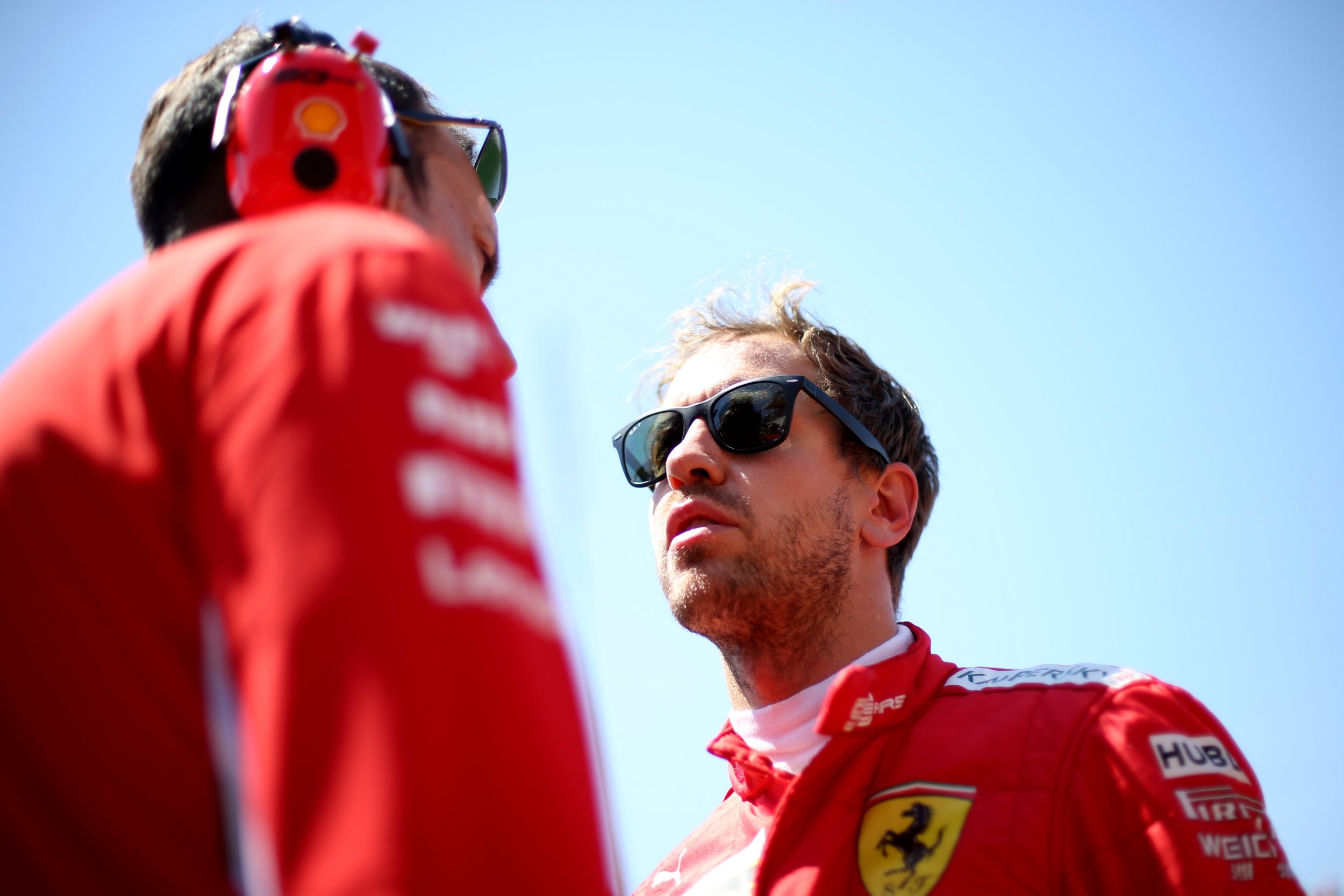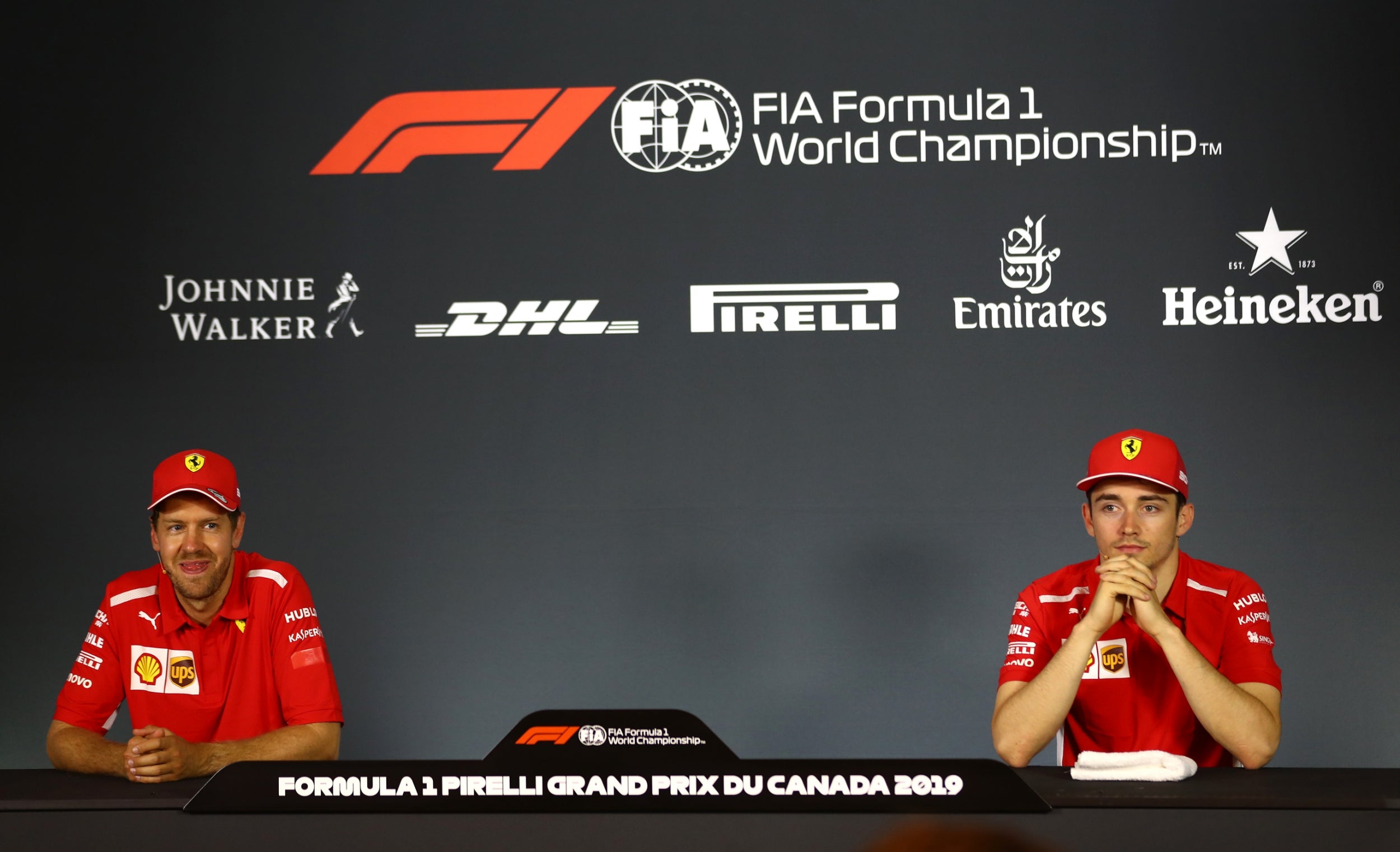F1: Sebastian Vettel and Ferrari are right to contest controversial Canada GP result, says Jackie Stewart
Vettel lost his victory to Lewis Hamilton after he was handed a five-second penalty for re-joining Montreal's Circuit Gilles Villeneuve in a dangerous manner following a mistake at the chicane

Your support helps us to tell the story
From reproductive rights to climate change to Big Tech, The Independent is on the ground when the story is developing. Whether it's investigating the financials of Elon Musk's pro-Trump PAC or producing our latest documentary, 'The A Word', which shines a light on the American women fighting for reproductive rights, we know how important it is to parse out the facts from the messaging.
At such a critical moment in US history, we need reporters on the ground. Your donation allows us to keep sending journalists to speak to both sides of the story.
The Independent is trusted by Americans across the entire political spectrum. And unlike many other quality news outlets, we choose not to lock Americans out of our reporting and analysis with paywalls. We believe quality journalism should be available to everyone, paid for by those who can afford it.
Your support makes all the difference.Sir Jackie Stewart believes Ferrari are right to push ahead with their appeal against Sebastian Vettel’s controversial penalty in the Canadian Grand Prix.
Vettel lost his victory to Lewis Hamilton after he was handed a five-second penalty for re-joining Montreal’s Circuit Gilles Villeneuve in a dangerous manner following a mistake at the chicane.
Ferrari have notified Formula One’s governing body, the FIA, of their will to have the decision reviewed, and, speaking on his 80th birthday, triple world champion Stewart says Vettel’s punishment did not fit the crime.
“There is certainly room for an appeal because it was a genuine error of judgment by Sebastian,” Stewart told the Press Association.
“You shouldn’t get punished for an error of judgement, unless you spin and damage the car. The decision by the stewards was rather severe.
“When Sebastian came off the grass he had nowhere to go. His car was carrying a huge amount of speed.
“In my mind, I am 100 per cent sure that he wasn’t blocking Lewis. I am damn sure he didn’t even know where Lewis was in the milliseconds that the incident took place. He had no option but to do what he did.”
Stewart is one of motor racing’s most decorated drivers with a remarkable hit rate of 27 victories from 99 grands prix.
He also survived Formula One’s deadliest era, and it was his campaign which transformed the safety of the sport.
Frenchman Jules Bianchi is the only F1 driver to have been killed this century, following his crash at the rain-hit 2014 Japanese Grand Prix.
“I am always amused when Martin Brundle interviews the drivers before a race,” added Stewart, reflecting on the TV pundit’s grid walk.
“Back in my day, the conversation would have been much drier. Indeed, a conversation might not have taken place at all, because of the death rate. If you raced for five years you were more likely to die than to survive.
“In one year, we had a Formula One driver killed on virtually the same date for four consecutive months; my good friend Jim Clark died in April of 1968, Mike Spence in May, Ludovico Scarfiotti died in June, and Jo Schlesser was killed in July. During my racing career, my wife, Lady Helen, and I counted 57 people that we knew well enough to call friends who had been killed.

“Yet, here I am, having never drawn blood from my body while driving a racing car.”
On Thursday, the Royal Automobile Club in London will honour Stewart by staging a lunch to celebrate his landmark birthday, as well as his first British Grand Prix win 50 years ago.
Such is Stewart’s standing that the Queen will be among his distinguished guests.
“It is a tremendous honour to have Her Majesty agree to be there for that celebration,” he added. “It is enormously impressive for me.

“I never think of age, and only in the last few weeks did I find out that I was going to turn 80. I suddenly thought, my God, that is awfully old.
“I have a new hip, a new knee, and I am going to have another new knee in December. I still work out. I still attend eight to 10 grands prix a year.
“The sport is better today than it has ever been in its history. People don’t like to see death, maybe big accidents, but not death.”
Join our commenting forum
Join thought-provoking conversations, follow other Independent readers and see their replies
2Comments